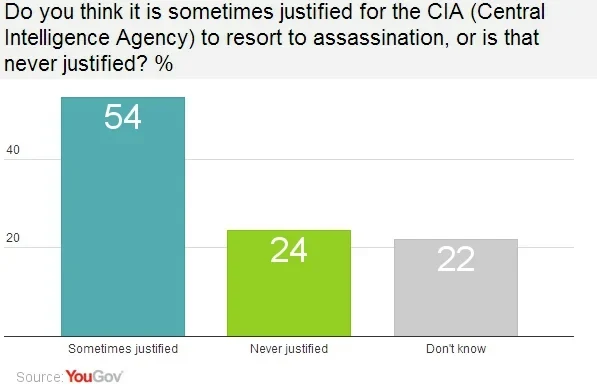Americans tend to think that the CIA can be trusted to make the right decisions, but still don't think that Congressional oversight has been good enough
The allegations of CIA spying on Congress made by Senator Dianne Feinstein, the chair of the Senate Intelligence Committee, may not necessarily ring true with Americans, or make then distrust the Central Intelligence Agency. In fact, the CIA may be insulated from criticism coming from a part of government – the U.S. Congress -- with a terrible reputation with the public. This week’s Economist/YouGov Poll finds the legislative branch of government with only a 10% approval rating.
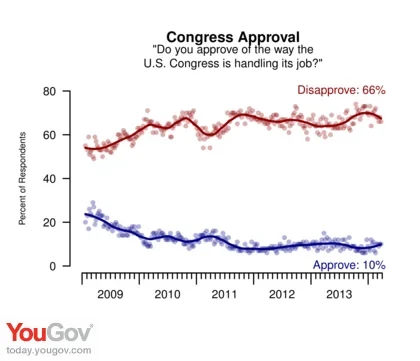
Congress has had a negative approval rating for years. And despite Senator Feinstein’s charge that the CIA had been hacking Senate computers (something Senate Majority Leader Harry Reid called “indefensible”), Americans have more confidence in the CIA than they do in Congress. The CIA receives a 52% favorable rating (34% are unfavorable), while recent assessments of Congressional leaders, both Republican and Democrat, have been unfavorable.
When asked whether they trusted the CIA to make decisions that are right for the country, nearly half the public does, although more than a third do not.
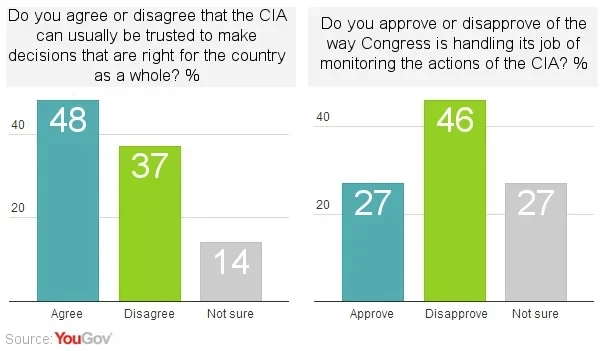
Nearly all groups say they trust the CIA to make the right decisions. But some are more suspicious. 40% or more of senior citizens, African-Americans, Westerners, liberals, and those with family incomes over $100,000 don’t trust the CIA.
On the other hand, Americans disapprove of the job Congress is doing monitoring the CIA, underscoring the weaknesses of Congress in the eyes of the public. Only 27% overall approve of Congressional performance here; just over a third of both Republicans and Democrats do.
There are many Americans who trust neither Congress nor the CIA. When asked to choose between them, 40% trust neither. But the CIA maintains an edge over Congress. Republicans and Democrats both choose the CIA over Congress, though 35% of Democrats and 42% of Republicans say they trust neither.
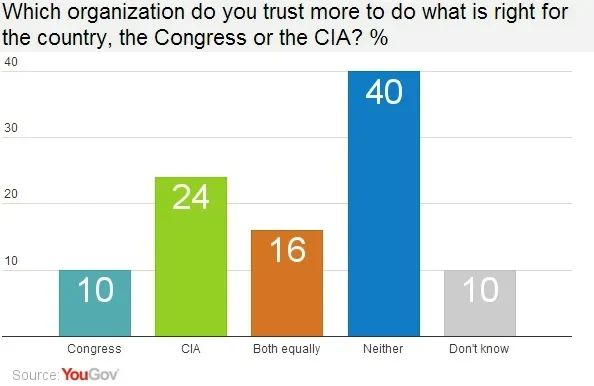
What helps to give the CIA an edge over Congress (beyond just the public’s poor assessments of that institution) may be the CIA’s role in the war on terrorism. It is likely that many Americans are judging the CIA based on that issue and the CIA’s performance in the struggle against terrorism, and not on the current battle over computer monitoring. And when it comes to fighting terrorism, Americans seem willing to give the CIA even more authority. Americans are divided on whether or not intelligence agencies are doing all they can to monitor the actions of terrorist groups or whether they should be doing more (a plurality of Democrats and a majority of liberals say they are doing enough; a majority of Republicans and conservatives think more can be done).
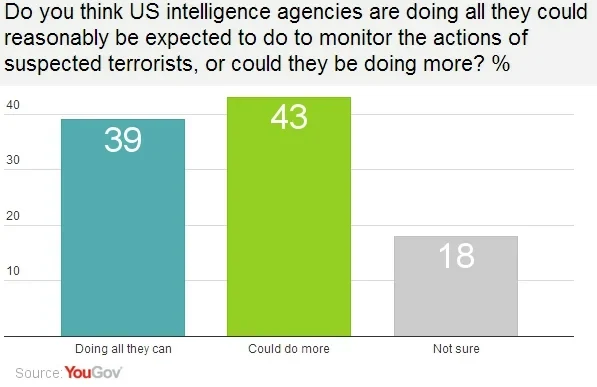
Those in the West and those with family incomes above $100,000 are more likely to say enough is being done than to think the opposite.
But even some of those who believe the intelligence agencies are already doing enough may be willing to allow the CIA to consider assassination. A majority of 54% overall say the agency is sometimes justified to resort to assassinations. Republicans, Democrats, liberals and conservatives agree.
